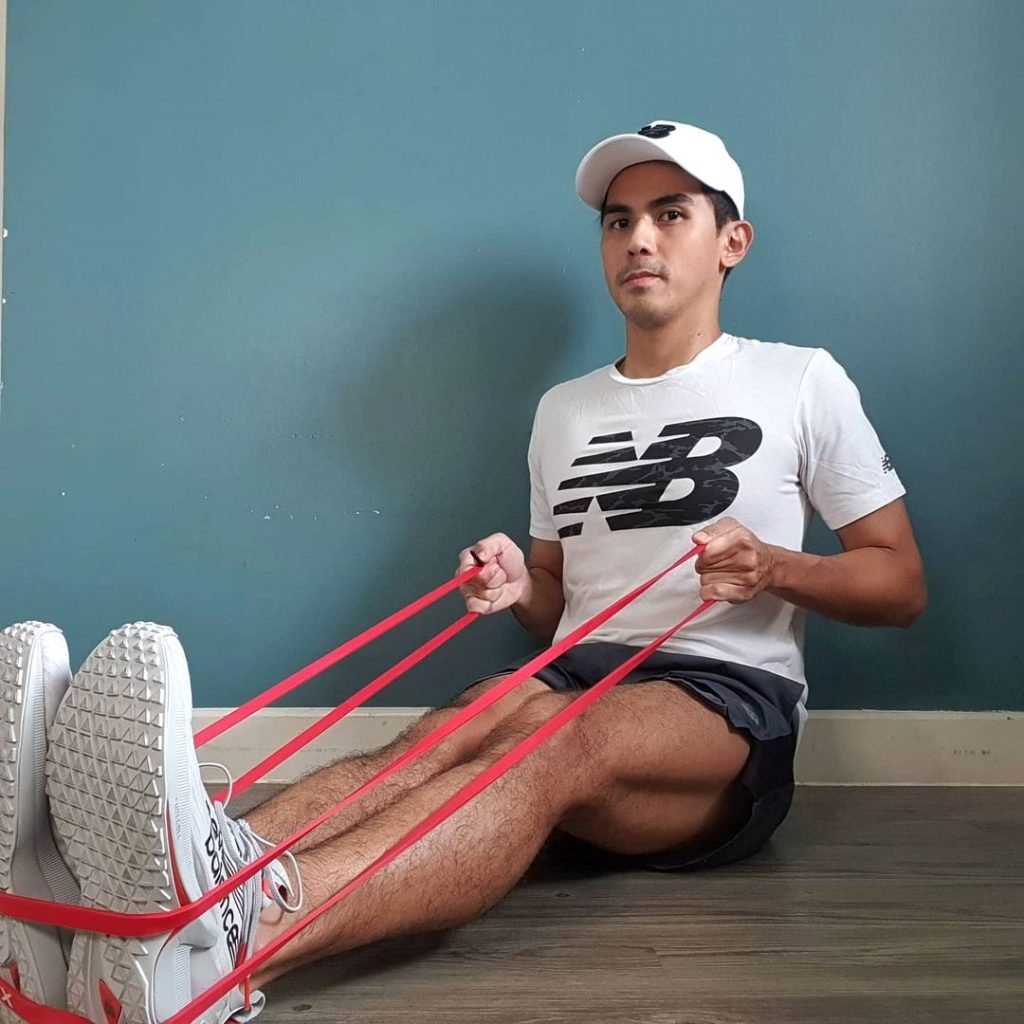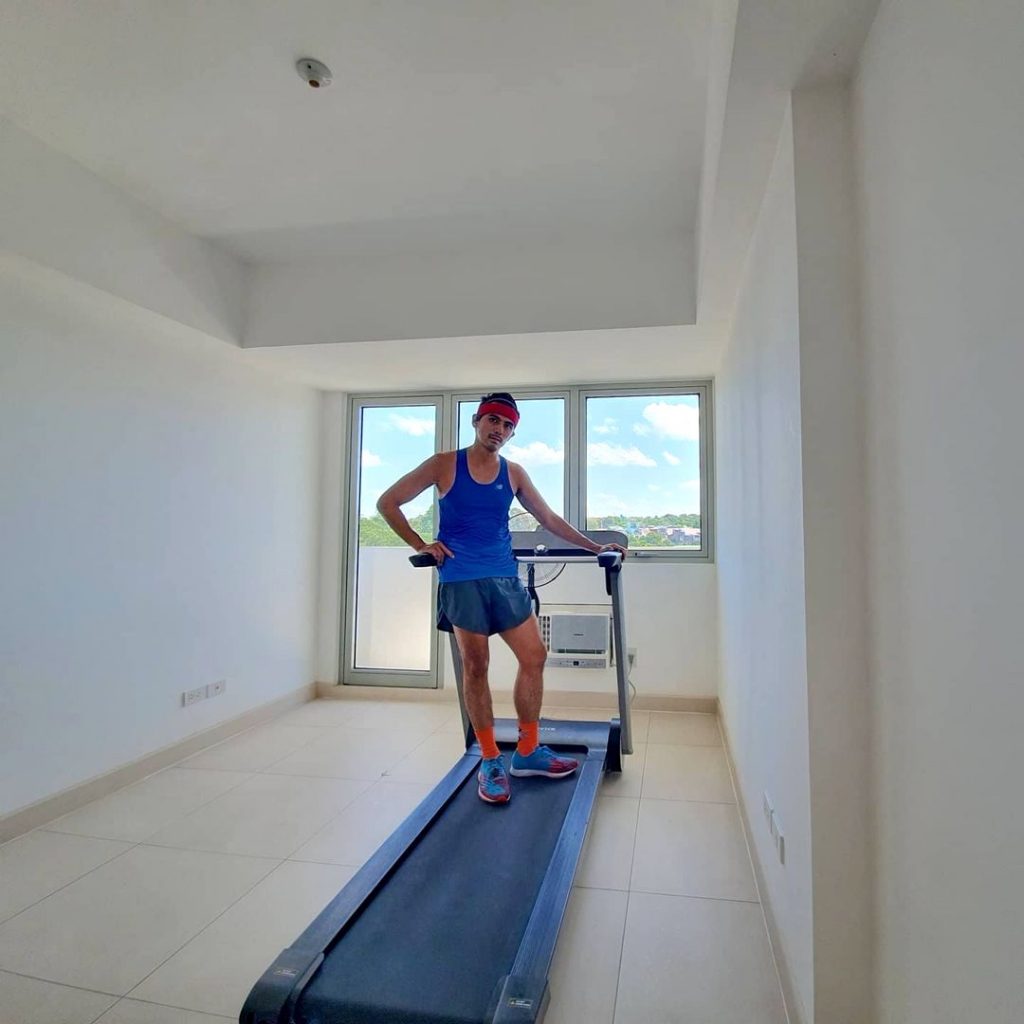We can’t buy more time to train but we can be smarter with how we utilize the 24 hours we have in a day
When I talk to people about triathlons, one of the foremost apprehensions they have is time—or lack thereof. And understandably so. Training for three sports seems daunting for the regular person with a nine-to-five job. Besides work, time for family, hobbies, and the all-important sleep take up large chunks of our day. So does this mean triathlon is only meant for those who have the luxury of time? Not necessarily.
I always tell people that time is the only commodity you can neither multiply nor replace. Each one of us has 24 hours in a day. We can’t buy more time nor replace it so it’s all about how we use the time we have. Here are a few tips on how you can make the most out of your day while training for a triathlon.
Train indoors or nearby
For the better part of the past decade, I’ve been spending almost all my time training indoors or near my residence. Yes, I still value that occasional ride or run outside but I honestly don’t do it often. Since my main goal is to perform (versus enjoying a scenic ride or socializing on a run), I’m able to focus on my specific workouts. By spending time indoors (or nearby), I eliminate probably the most time-consuming and stressful part of living in Metro Manila: traffic. Instead of spending an hour or two on the road, I can dedicate that time to more important things. I also get to save on gas, toll, food, and the other expenses associated with training “out.”

Tip: Invest in your own personal pain cave or corner at home. You don’t have to buy the most expensive equipment but get something you’re comfortable with and that suits your needs. There are a lot of value-oriented bike trainers and treadmills available now and these would also be perfect during this pandemic.
Choose your battles
When I was younger, I had a lot of free time. Being a fresh graduate, single, and essentially free from responsibilities, I could spend several hours a day training. I got to train for several Ironman races and would just enjoy racing year-round. It was fun while it lasted but things changed when I got married, became a dad, and focused on coaching. However, even with less time dedicated to the sport, I could categorically say that I’m still getting stronger and faster. On top of that, I’d say I’m enjoying my lifestyle even more now. How? It’s all about choosing the right race.
A lot of people make the mistake of treating every single race like it’s the “big one.” Over the years, I’ve learned to choose one or two races that I would peak for. Other races (if ever) are meant to build confidence, fitness, and experience. That said, it’s about knowing how everything falls into place toward your “A race.”
A lot of people make the mistake of treating every single race like it’s the “big one.” Over the years, I’ve learned to choose one or two races that I would peak for. Other races (if ever) are meant to build confidence, fitness, and experience. That said, it’s about knowing how everything falls into place toward your “A race”
Aside from this, choose the distances you’re preparing for. We tend to fall into this “distance trap.” We associate longer distances with better or higher-ranking races. As I raced over the past decade, I could tell you that this can be further from the truth. Our effort and the quality of our races are more accurate gauges of the race vs. distance debate.
For example, we can choose to race an Olympic distance event really well if we want to. This won’t take anything away from our accomplishment just because it’s shorter than an Ironman. At the end of the day, we need to make sure our goals are aligned with the time we have available and our dedication toward the day-to-day sacrifices in training.
Tip: Before you go longer, try and go faster first. By becoming fit and strong, logging the distances required for an Ironman or a 70.3 would be easier. Of course, this is not meant to take anything away from people who just want to finish. I have the same mad respect for those spending close to 17 hours on their feet as the ones who land on the podium. This just might be a better alternative for those who want things to be a little more manageable.
Don’t think in terms of “weeks”
Truth be told, I had one of the best training gains in my career when I forgot about needing to fit my training into a seven-day schedule. Since I had a more flexible work arrangement back then, it was more feasible to move stuff around. The long rides and runs weren’t always on weekends and I was able to cycle through different types of sessions on a more consistent basis.

In short, I wasn’t a slave to the traditional sense of a workweek. This arrangement also allowed me to recover better and to accumulate fitness in a more consistent manner. However, I understand this might not be the best setup for most of us. Our work and family lives are defined by weeks and deviating from this might end up being too complicated. Nonetheless, this might be something worth experimenting on if you find yourself lacking the time to squeeze in regular sessions week to week.
Tip: Instead of something like a 10-day cycle, shift your focus on alternate weeks. For example, in one week, you could prioritize intensity and intervals. The following week, aim for longer sets and endurance work. Repeat as necessary but don’t forget that all important recovery block.
Have some training questions, feedback or suggestions for future articles? Drop a note in the comments section below or on Facebook, Twitter or Instagram. You can also get in touch with Don directly here.